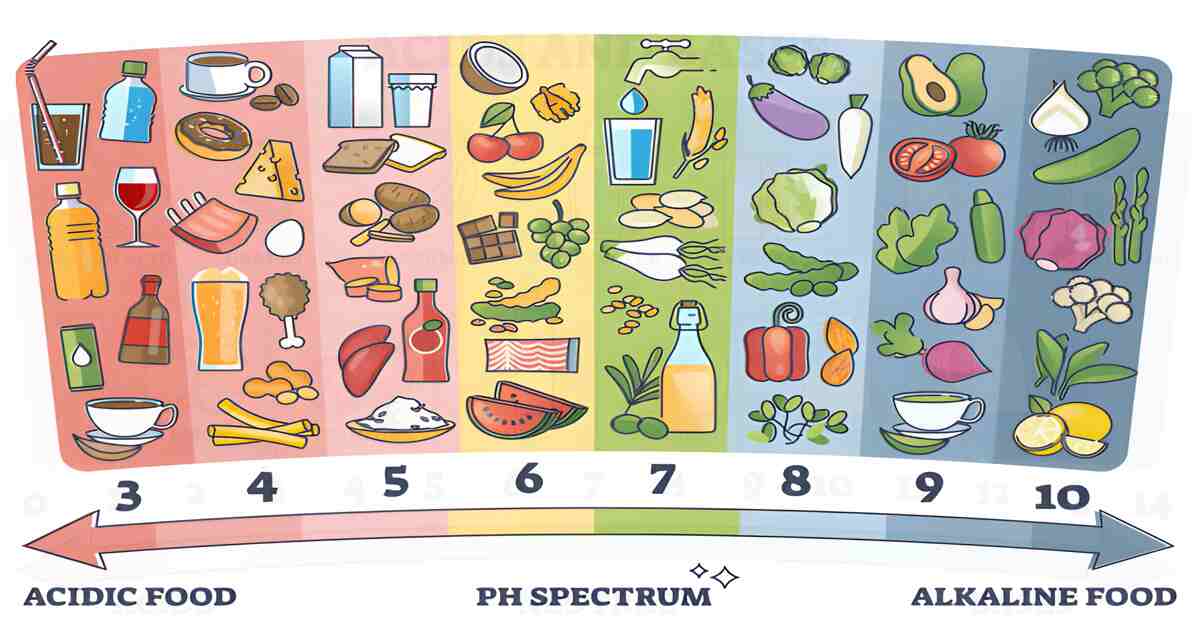Nutrition is the cornerstone of a healthy lifestyle, profoundly influencing our overall well-being. Our food choices directly impact our physical health, energy levels, and long-term vitality. A balanced, varied diet in essential nutrients, such as vitamins and antioxidants, supports the proper functioning of the body’s systems.
Understanding the importance of nutrition involves recognizing the role of macronutrients like proteins, carbohydrates, and fats, as well as micronutrients essential for cellular function. Cultivating mindful eating habits and making informed food choices empower individuals to maintain a healthy weight, enhance immunity, and reduce the risk of chronic diseases. Nutrition is the foundation for a vibrant and resilient life, influencing our present well-being and long-term health outcomes.
Why nutrition is important?
Nutrition is fundamentally important as it is the bedrock of our health and well-being. The foods we consume provide the building blocks our bodies need to function optimally. Each nutrient, from essential vitamins and minerals to macronutrients like proteins, carbohydrates, and fats, uniquely supports various physiological functions.
Adequate nutrition is crucial for sustaining energy levels, promoting growth and development, and maintaining a robust immune system.
Furthermore, nutrition has a profound impact on cognitive function and mental health. Nutrient-rich foods support brain health, aiding concentration, memory, and overall cognitive performance. Conversely, poor nutrition is linked to mood swings, fatigue, and an increased vulnerability to mental health disorders.
A well-rounded and mindful approach to eating fosters physical health and establishes a strong foundation for a balanced and fulfilling life. In essence, prioritizing nutrition is an investment in one’s long-term health and quality of life.
Which food is rich in nutrients?
Various foods are rich in essential nutrients vital for overall health and well-being. Leafy green vegetables, such as spinach and kale, are excellent sources of vitamins like A, C, and K and minerals like iron and calcium. These vegetables are low in calories and antioxidants, contributing to a robust immune system and promoting healthy skin.
Fruits, especially blueberries, strawberries, and raspberries, are rich in vitamins, fiber, and antioxidants. Additionally, they provide a sweet and satisfying alternative to sugary snacks.
Lean proteins like chicken, turkey, fish, and tofu are essential for muscle growth and repair. They also contain amino acids necessary for various bodily functions.
Nuts and seeds, like almonds, chia seeds, and flaxseeds, are nutrient-dense snacks packed with healthy fats, fiber, vitamins, and minerals. They contribute to satiety and can be beneficial for weight management.
Whole grains, such as quinoa and oats, are excellent sources of complex carbohydrates and various nutrients. They provide sustained energy health.
In summary, a well-balanced diet that includes a diverse range of fruits, vegetables, lean proteins, nuts, seeds, and whole grains ensures a comprehensive intake of essential nutrients, fostering overall health and vitality.
What is the main idea of nutrition?
The main idea of nutrition revolves around providing the body with the necessary nutrients for optimal functioning and well-being. Nutrition is not just about eating; it’s about consuming a balanced and diverse range of foods that supply the essential elements vital for various physiological processes.
At its core, nutrition fulfils the body’s energy needs, supporting everyday activities and metabolic functions. This involves understanding the significance of macronutrients such as carbohydrates, proteins, and fats, each playing a distinct role in energy production, tissue repair, and overall growth.
Vitamins and minerals are crucial for maintaining specific biochemical pathways and cellular processes. These micronutrients act as cofactors in enzymatic reactions, ensuring the smooth operation of vital functions ranging from immune response to bone health.
The main idea of nutrition extends beyond mere sustenance; it involves making informed choices to promote health and prevent diseases.
In essence, the main idea of nutrition is to recognize food as more than just fuel; it is a key determinant of our physical, mental, and emotional well-being. Adopting a mindful, balanced approach to nutrition empowers individuals to nurture their bodies, fostering longevity and vitality.
What are the examples of nutrients?
Nutrients are essential compounds that the body needs for growth, development, and maintenance. They can be broadly classified into macronutrients and micronutrients, each uniquely supporting overall health.
Macronutrients are the nutrients required in quantities, including carbohydrates, proteins, and fats. Carbohydrates, found in foods like fruits and vegetables, are the body’s primary energy source. Proteins in sources like meat, fish, beans, and dairy are crucial for building and repairing tissues. Fats from sources like avocados, nuts, and olive oil are an energy reserve and contribute to various cellular functions.
Micronutrients are needed in smaller amounts but are equally important, Vitamins and minerals fall into this category. Examples of vitamins include vitamin C found in citrus fruits, vitamin D in fatty fish and sunlight exposure, and vitamin A in carrots and sweet potatoes.
Water is another crucial nutrient that is often overlooked. It is essential for hydration, digestion, and body temperature regulation.
In summary, nutrients encompass diverse substances contributing to the body’s proper functioning. A balanced diet that includes a variety of foods ensures an adequate intake of these nutrients, supporting optimal health and well-being.
Who is the father of nutrition?
The title “Father of Nutrition” is often attributed to Dr. William Beaumont. However, it’s important to note that nutrition as a field of study has evolved over centuries, and various pioneers have significantly contributed to its development.
Dr. William Beaumont, an American surgeon in the 19th century, is renowned for his groundbreaking work in understanding digestion. His extensive research was centred around Alexis St. Martin, a Canadian fur trapper who sustained a gunshot wound to the stomach. Through a fistula (an opening) in St. Martin’s abdomen, Beaumont conducted numerous experiments, observing the process of digestion and the effects of different foods on the stomach. Beaumont’s meticulous observations laid the foundation for understanding gastric physiology and nutrient absorption.
While Dr. William Beaumont is often recognized for his contributions, it’s crucial to acknowledge the collective efforts of scientists, researchers, and physicians throughout history who have advanced our understanding of nutrition. Figures like Antoine Lavoisier, the “Father of Modern Chemistry,” also contributed significantly to understanding metabolism in the late 18th century.
In essence, the field of nutrition has evolved through the cumulative work of numerous individuals, and attributing it to a single “father” may oversimplify the collaborative and interdisciplinary nature of nutritional science.
Is water a nutrition?
While water is not traditionally considered a nutrient, it is undeniably crucial for sustaining life and maintaining optimal health. Unlike macronutrients (carbohydrates, proteins, fats) and micronutrients (vitamins, minerals) that provide specific nourishment, water is categorized as a “non-nutrient” or “non-caloric” substance. However, its role in supporting various physiological functions is indispensable.
Water is vital for digestion, as it helps break down food and facilitates nutrient absorption in the digestive tract. Additionally, water is essential for transporting nutrients and waste products throughout the body.
Hydration is critical for overall well-being, influencing cognitive function, mood, and physical performance. Dehydration can lead to fatigue and compromised physical abilities.
Although water doesn’t provide energy or essential nutrients in the traditional sense, its significance in maintaining health cannot be overstated. It is an integral part of a balanced and healthy lifestyle. Individuals are encouraged to stay adequately hydrated by consuming an appropriate amount of water daily, and its importance extends beyond the conventional definition of nutrition to encompass overall well-being and bodily function.







